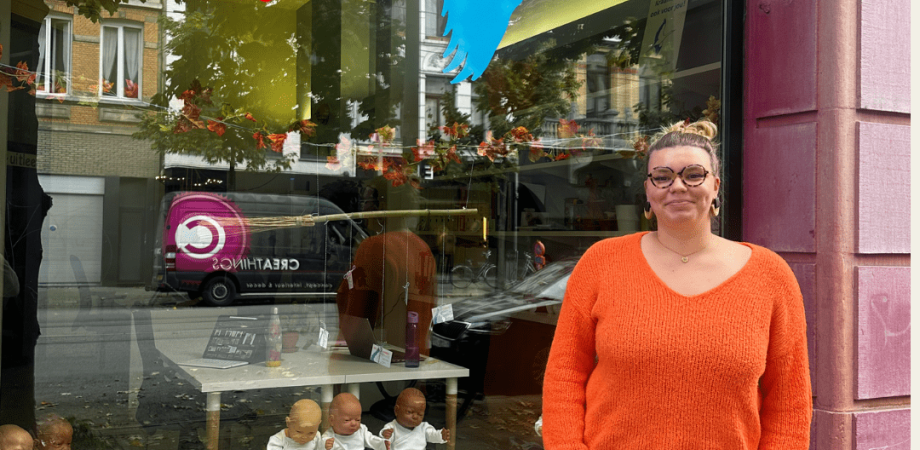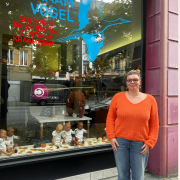Gastblog: Uitwisselingsstudent Wallonië

Hello everyone! My name is Zélie, I'm French, and I'm currently in my third year of midwifery studies in Wallonia. This year, I’m fortunate enough to be participating in a 15-day exchange in Antwerp to learn about practices in Flanders and enrich my training. It’s a fantastic opportunity to study in a new environment and meet other international students!
Today, I visited ‘De Kraamvogel,’ a place where everyone is welcome to ask questions about pregnancy and motherhood. I’m currently on exchange in Antwerp with KdG, where I’ve had the chance to explore the fertility and maternity department of the Middelheim hospital. The medical team gave me a warm welcome and shared their expertise on the various treatments and support available to patients. It’s fascinating to observe how approaches can differ from one region to another and to exchange ideas with students and professionals in such a dynamic environment.
I’ve been asked to write a little something, so I’ve chosen to share some insights about midwifery in Belgium, focusing on the similarities between Flanders en Wallonia .
SIMILARITIES between Wallonia and Flanders:
- In both Flanders and Wallonia, midwives play a multi-faceted role. They are responsible for pregnancy, childbirth, and postpartum care. Midwives conduct prenatal consultations, assist with physiological childbirth, provide postnatal care for both mother and newborn, and participate in parenting education.
- In both regions, women can give birth in hospitals, birthing centers, or at home, but the majority of births take place in hospitals with both gynecologists and midwives present.
- The legislative framework is the same across Belgium, as the profession is regulated at a national level. Midwives have the right to practice autonomously in cases of physiological pregnancies (without complications) and refer patients to doctors or gynecologists when necessary.
- In both Wallonia and Flanders, midwives play a key role in supporting normal pregnancies, childbirth and postnatal care. They accompany women throughout pregnancy, childbirth (if uncomplicated) and the first few days after birth.
- In both regions, midwives provide comprehensive care. They provide prenatal consultations, offer birth preparation courses, monitor the health of mother and baby after childbirth, and support breastfeeding.
The common objective of midwives in Wallonia and Flanders is to provide women and families with caring support at every stage of pregnancy, childbirth and the post-partum period. They strive to provide high-quality care, with a woman-centered approach and respect for the physiology of childbirth. Whether in Wallonia or Flanders, the midwives' mission is to promote comprehensive care, support breastfeeding, provide information on contraception and guarantee a safe environment for childbirth, while respecting patients’ individual choices. Their commitment remains the same: to promote the well-being of mothers and newborn babies.
My experience at De Kraamvogel
In conclusion, ‘De Kraamvogel’ is a centre for perinatale expertise, based in Antwerp, that supports families throughout pregnancy and after birth. It is aimed at anyone looking for answers, whether it's about wanting to have a baby, after the discovery of the pregnancy, after the birth, etc. The team offers personalised support at every stage and provides a referral if necessary.
During my time at ‘De Kraamvogel’, I gained valuable insights into the comprehensive support offered to families during pregnancy and after birth. I realised how crucial it is for parents to have access to resources and information, especially when they are unsure about their journey to parenthood.
In addition I was able to see how practical demonstrations enable people to take control of their health, and how theoretical discussions are never really understood or retained whereas practical application enables people to visualise and better understand the things that can or will happen to them.
I also attended babywearing sessions, and a welcome morning for children and their parents who needed advice or just a sympathetic ear.
Finally, the warm and caring approach of the De Kraamvogel team showed me the importance of a supportive environment for families, where they feel heard and understood. This experience has enriched me deeply and strengthened my desire to contribute to a respectful and enlightened accompaniment of families in their parental journey.






